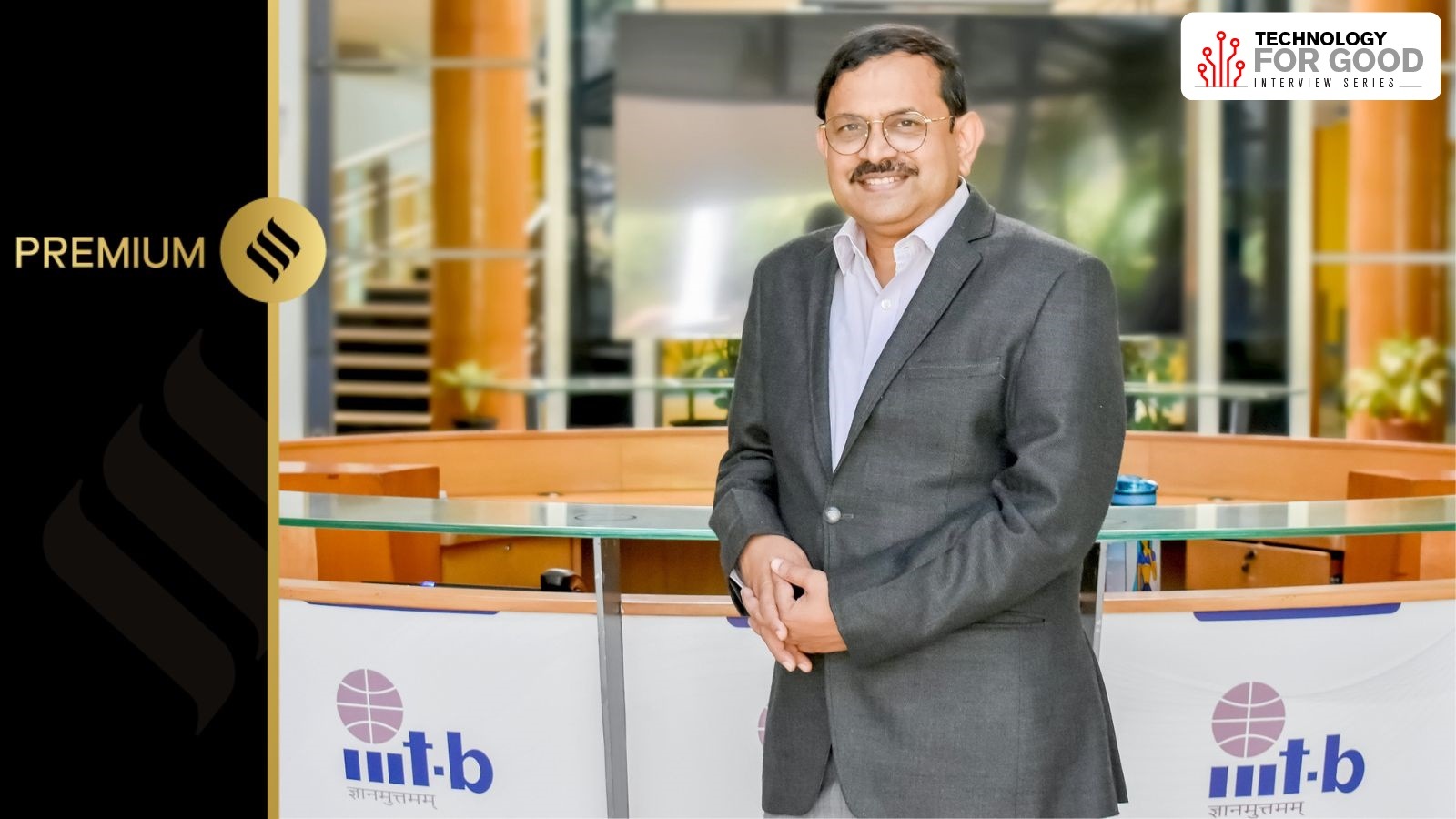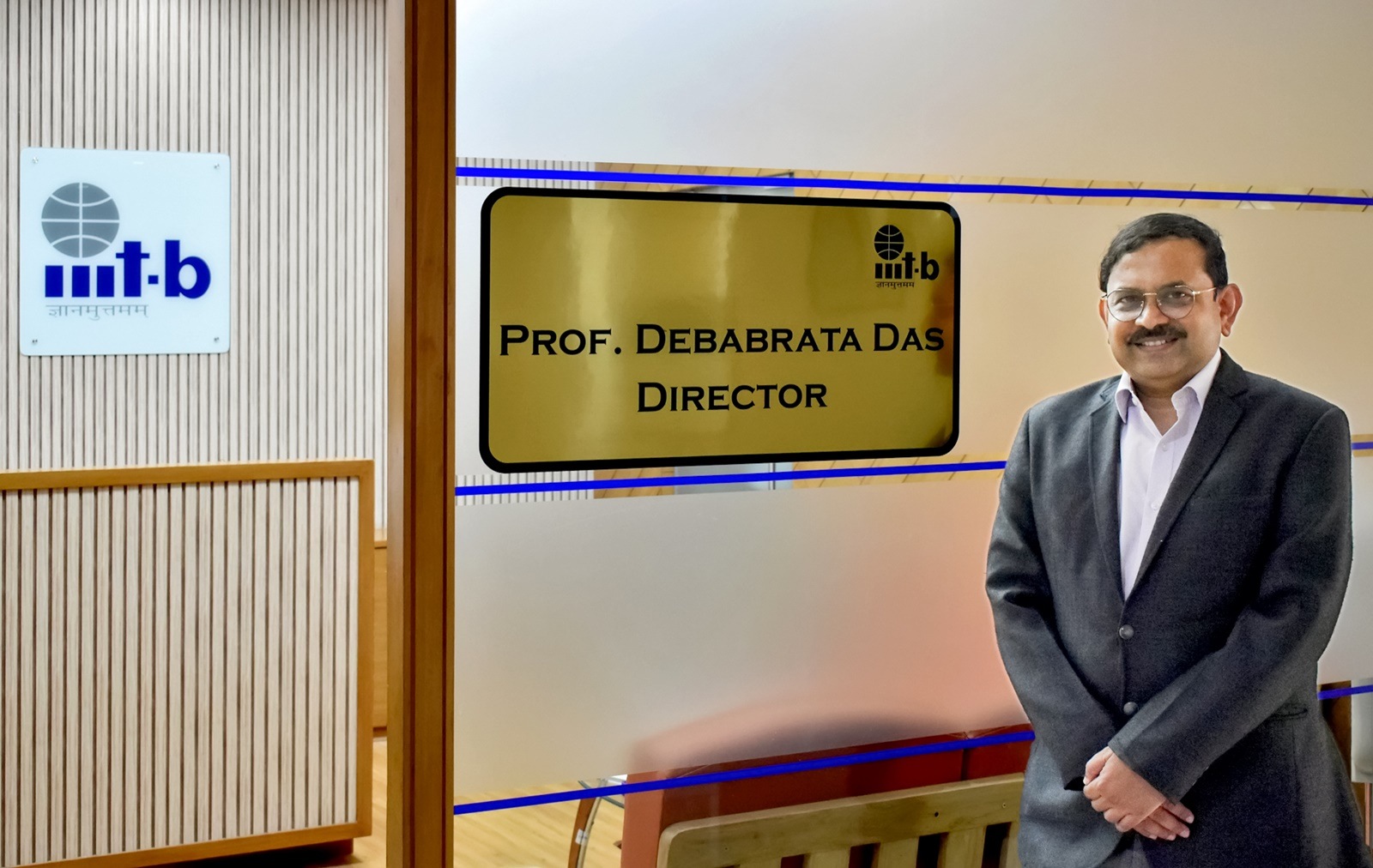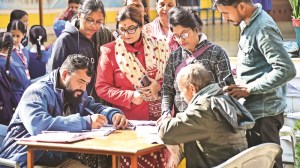Our work on building 5G-Advanced base stations will be a game changer: Debabrata Das, Director, IIIT Bangalore
Dr. Debabrata Das is also the Project Officer of National Mission for Interdisciplinary Cyber Physical Systems in the areas of Advanced Communication System, from DST, Govt of India.
 Before joining IIITB in 2002, Das was with IIT Kharagpur and Kirana Networks in New Jersey, US. (Express photo by Jithendra M)
Before joining IIITB in 2002, Das was with IIT Kharagpur and Kirana Networks in New Jersey, US. (Express photo by Jithendra M)Dr. Debabrata Das is the Director of International Institute of Information Technology Bangalore (IIITB), a premier research deemed university. He is also the Project Officer of National Mission for Interdisciplinary Cyber Physical Systems in the areas of Advanced Communication System, from DST, Govt of India.
Before joining IIITB in 2002, Das was with IIT Kharagpur and Kirana Networks in New Jersey, US.
Das’ research interests are in IoT and Wireless Access Network tech. With more than 200 peer reviewed papers in various journals, and five patents both in US and India, he is also the chairman of IEEE India Council 2023-2024.
 Dr Das also spoke about a product called Margadarshi, a customised learning platform helping rural Indians prepare for UPSC interviews, while highlighting innovations with social impact. (Express photo by Jithendra M)
Dr Das also spoke about a product called Margadarshi, a customised learning platform helping rural Indians prepare for UPSC interviews, while highlighting innovations with social impact. (Express photo by Jithendra M)
Das spoke to indianexpress.com on the various innovations that have emerged out of their research programmes, on building 5G-Advanced base stations, digital identity platforms, and robotics, and their products that have made a significant impact on governance. Edited excerpts:
Venkatesh Kannaiah: Can you tell us about a few innovations with social impact that have emerged out of your various research programmes?
Debabrata Das: We work on a lot of cutting edge and deep tech arenas. They range from being the hub for digital public infrastructure, artificial intelligence and deep tech themes, human behaviour monitoring through image and video processing, data analytics on large government programmes for helping public policy, research on building base stations for 5G, and building the backend for large government mental tele health programmes like Tele MANAS.
We have built a product called Margadarshi, a customised learning platform helping rural Indians prepare for UPSC interviews. The Government of Karnataka has already begun distributing this product to aspirants and has got a very good response. It frames questions based on user competence and the answers that you have given earlier. This is the first phase of the product.The second phase would involve research into more behavioural aspects, where it would be tracking facial expressions and body language and providing tips on the same. This is in its very early stages now.
We have a product called Datalake which is unique in that it can crunch a lot of government data on various projects. For example, if we have the data on the beneficiaries of a particular government programme, the algorithm can match the beneficiary data to the policy prescriptions for the project and find whether the policy goals have been met and whether there is scope for improvement. We can also predict how the beneficiary structure can be tweaked to fit the policy and help the citizens. In India, tech is the only way to analyse large amounts of data and a large number of government programmes would need to be analysed and fine-tuned for better reach. Datalake is a unique product, and the Government of India is our partner.
 Das’ research interests are in IoT and Wireless Access Network tech.
Das’ research interests are in IoT and Wireless Access Network tech.
In the telecom arena, there are only four companies from abroad which build base stations for 5G and we are forced to buy from them. . They are quite expensive, and we are part of a group of research institutions working to build base stations for 5G. It is quite a deeptech challenge. If we are able to resolve it, then it would reduce the costs by around one-fifth, be fully indigenous and highly secure. We are also working on building the standards for reconfigurable intelligent surfaces for 6G, where IIIT Bangalore is working with other IITs, and which would lead to better communication across the spectrum.
Another interesting project of ours is in mental health research. Tele MANAS isa tele health initiative where we provide database design, applications, and other tech backend, while NIMHANS, Bengaluru provides the domain knowledge. Mental health is still a taboo in India,and with this tele health service we connect to the nearest telemedicine hospitals and doctors who are part of the network. Nearly seven lakh mental health related calls have been received on this network over the last 12 months, and we are happy to be part of this initiative.
Venkatesh Kannaiah: Can you tell us about your MOSIP and MINRO research centres and the innovations that are emerging from there?
Debabrata Das: The Modular Open Source Identity Platform (MOSIP) was established in 2018 to address the many complex challenges around the implementation of foundational ID systems. It is the largest open source platform or product from India being deployed across the globe. Around 18 countries have so far signed up. MOSIP offers countries modular and open-source technology to build and own their national identity systems. It is like building an Aadhaar for the international community and the Global South and giving it to them in open source. The Global South is hungry for such tech, in open source without the hassle of proprietary lock-ins, minimal vendor issues and increased interoperability. They also recognise it is a tech which will help their sovereignty and independence.
Eighty countries across the globe have tried to build such identity systems and have failed. There are many issues for such a tech to work, and issues of scalability, openness, and the tech stack itself is complex. We are certainly a decade ahead in digital identity and it shows up in our products and our applications. Many countries in the advanced world too are now getting curious about this tech. As this takes off across the world, it would certainly help Indian system integrators and biometric companies.
 While on the subject of successful student startups, Dr. Das said Vision Empower that came out of IIITB was an impactful one. (Express photo by Jithendra M)
While on the subject of successful student startups, Dr. Das said Vision Empower that came out of IIITB was an impactful one. (Express photo by Jithendra M)
The Machine Intelligence and Robotics Centre (MINRO), funded by the Government of Karnataka, will conduct research on areas related to machine intelligence, artificial intelligent systems, data analysis, data science, pattern recognition, human-machine interface, and industrial products of robotics and automation. It would address real world problems of governance and society apart from manufacturing, transportation, and assisted living. Some of the interesting issues that we work on is traffic analysis of Indian road conditions, crunching data on traffic, multimodal transport using data to give suggestions on, say, where the Metro should be placed and where the bus stations should be placed.
Venkatesh Kannaiah: Can you tell us about a student startup which has created substantial social impact?
Debabrata Das: Vision Empower is one of the impactful startups that came out of IIITB. Vidhya was a visually challenged student and she wanted to pursue MSc in Digital Society at IIITB. She was also the first visually challenged student to study mathematics in a bachelor’s degree course in computer applications from Christ University, Bangalore and was the topper of her batch. Vision Empower Trust is into Braille printing of books on a tablet and other devices at near zero cost.
Venkatesh Kannaiah: Can you tell us about one or two of your initiatives which you are working on which you think is a very long bet, which if worked out will create a huge social impact.
Debabrata Das: We have built a new tech solution for Open Radio Access Network (ORAN) base stations which will help high-speed and reliable connectivity even for remote areas.
 “ORAN base station solutions, a critical component of next-generation telecommunications infrastructure, makes it easier, efficient, and more economically viable to provide internet in remote areas,” Dr Das says. (Express photo by Jithendra M)
“ORAN base station solutions, a critical component of next-generation telecommunications infrastructure, makes it easier, efficient, and more economically viable to provide internet in remote areas,” Dr Das says. (Express photo by Jithendra M)
At our COMET tech innovation hub, we work on next generation of wireless communication by building 5G and beyond mobile base stations using the vendor-neutral RAN, 5G/6G core network technologies, reconfigurable intelligent surface for wireless, UAV/Drone communication and radar for drone detection and routing.
This ORAN base station solution has been designed and is under development for creating energy efficient wireless communications technology for 5G and 5G-Advanced radio networks.
ORAN base station solutions, a critical component of next-generation telecommunications infrastructure, makes it easier, efficient, and more economically viable to provide internet in remote areas. This would be operational in six months and would be a game changer.







